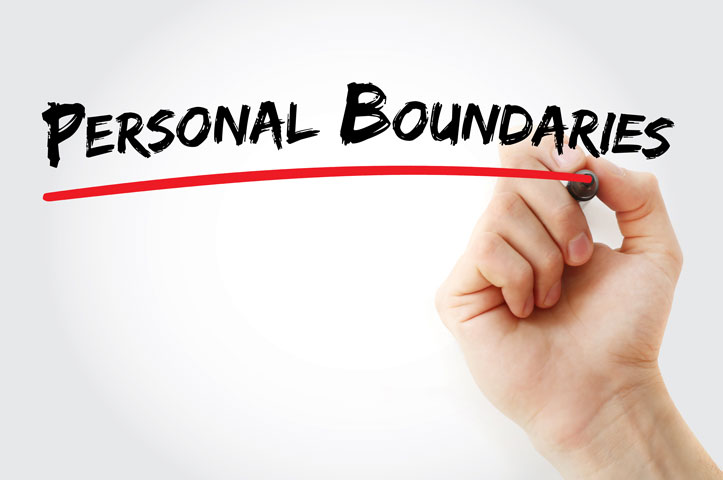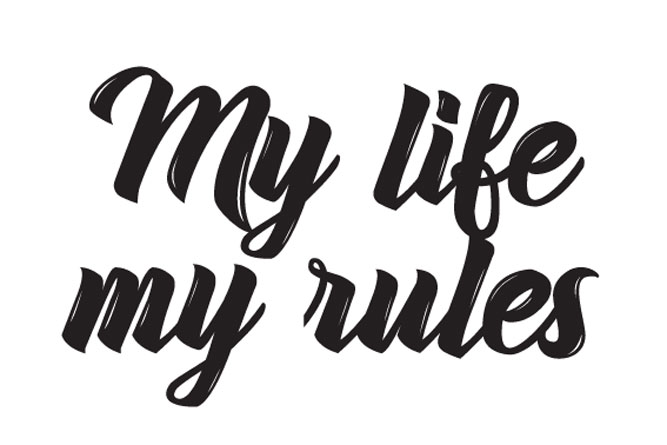Mother Nature and her many forms are just so fascinating. Listening to the wind howl at the moon or the rainfall in a backyard is my kind of day. I mean, have you ever just sat and watched the ocean waves and the simplicity of their motions? The tide lowers and rises but continues without skipping a beat. The waves ride in and out, erasing all in their path as the salt continues to leave its tracks on the top of the sands. It seems simple, but the majesty behind it is all about perspective.
Have you ever drawn a line in the sand and watched the waves come and go- slowly erasing that mark you once made on the world? Imagine the waves are an alcoholic and you set that line in the sand to not be crossed. Makes sense huh? Setting boundaries with addicts is a line that must be dug deeper and hiked a little further upsand away from the tide. This is a nice cheesy metaphor we can all relate to as we start building our sandcastle walls and setting restrictions in recovery to protect ourselves.
Waves Can Be Unpredictable
One thing that’s for sure in this life is you get what you’re willing to tolerate. There is an extent of course as to what we can and cannot control but we have the tools to deal with it appropriately today. Setting your boundaries with addicts is never an easy thing, but it makes the world a difference whether they are using or actually clean. Addicts and alcoholics can slip off the path of sobriety in an instant. The person in front of you can Hyde and Jekyll their act real quick into a matter of days just transforming into an absolute wreck. That’s chemical dependency for you.
Of course, addicts and alcoholics hear what they want to hear. This means boundaries with addicts can be set, but they don’t have to agree with them. It is very common for them to keep pushing the envelope and see how far they can test somebody. It happens all the time, hell- I’m one of those people. It’s kind of our addictive nature. It’s like they say in the rooms of Narcotics Anonymous, “One is too many and a thousand is never enough.” Addicts can be told face to face the word “No” and meanwhile, their thinking of a way to make that a “Yes.” They are stubborn and relentless and unless working a great program, will not stop until they get the thing they want. Alas, so many of us forget there is a difference between our silly wants and valuable needs.
Don’t Drown
Any sort of boundaries with addicts while they’re clean is usually a more rational conversation to be had- usually. Some people, when they’re locked in that distorted mindset, will not listen to anything you say if it affects their ability to get high at any point. Then you set boundaries with addicts that don’t need to get high anymore- but are still swarmed with alcoholic thinking. They are just as prone to try and break your restrictions if you give them a chance. It really depends on a case by case basis. Establishing healthy boundaries with addicts can be any and everything that has to do with protecting yourself from their selfish ways. Boundaries with addicts can range from
- No drug using friends are allowed around
- No drugs/alcohol in the house
- Not lying for the person to cover up their mistakes
- Stopping trusting their word if they continually break it
- Not giving money in any form
- Self respect and not allowing them to treat you poorly
Addiction can and will distort the roles that friends and family play for the addict/alcoholic. They will start to view you as not necessarily somebody who cares about them, but somebody who is weak that because of the care exhibited they can manipulate. It’s a lazy disease that feeds off of lies and deceit as it tries to get other people to carry it while it’s destroying its host.
Stand Your Ground
One of the most important things to recognize when laying down boundaries with addicts is to actually be self aware as to when you may be enabling that person. Too often we think we’re doing something out of love or care for them, but they are pulling the sheep’s wool over our eyes (then later stealing it and pawning it if possible). This is the insanity the disease of addiction provides.
Think about how many times you have had to guilt trip your addict because of something they have done wrong and wrong again. It’ll be the same error repeated and absence of remorse in most every case. Or how many times have you brought up what they’ve done wrong in the past? We walk on eggshells to avoid starting problems with them. We criticize them in hopes of helping them with advice that they don’t even want in the first place. We cover for them and lie to their school, job, girl/boyfriend- just so they can continue to be waves and crash down on our lines in the sand. These are all signs that we are likely enabling our addicted loved one. If we are always enabling them, we are the only ones to curse. Boundaries with addicts can be a tough foundation to lie, but it will always build for a stronger support system believe it or not. Unfortunately, this disease is life and death and cannot be tolerated.
Draw a Line for Yourself
Sometimes with addicts and alcoholics, we struggle to follow those boundaries because we can’t even set them personally for ourselves. The disease of addiction rules with this obsession that causes very irrational and selfish thinking. Getting the stuff out of our systems and trying a new way of life can turn that all around. If you or a loved one is struggling with chemical dependency and are ready for help, please call 1-800-481-8457 or visit oarcstaging.wpengine.com. We are ready to give you any suggestions possible and set you or your loved one on a path that we can all be proud of.







